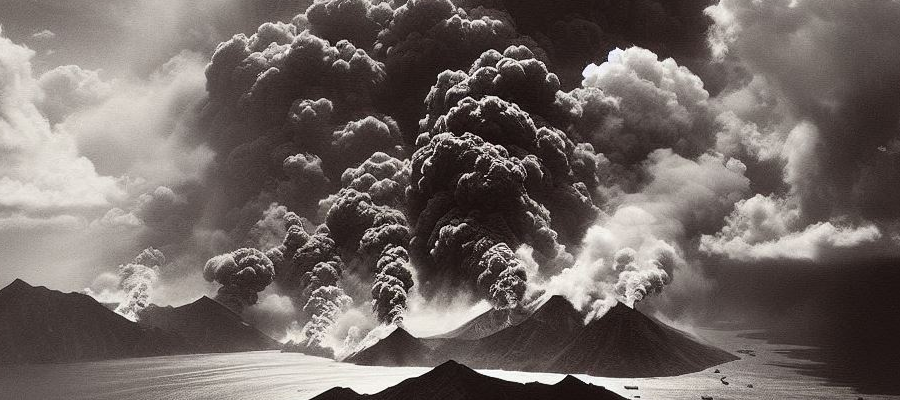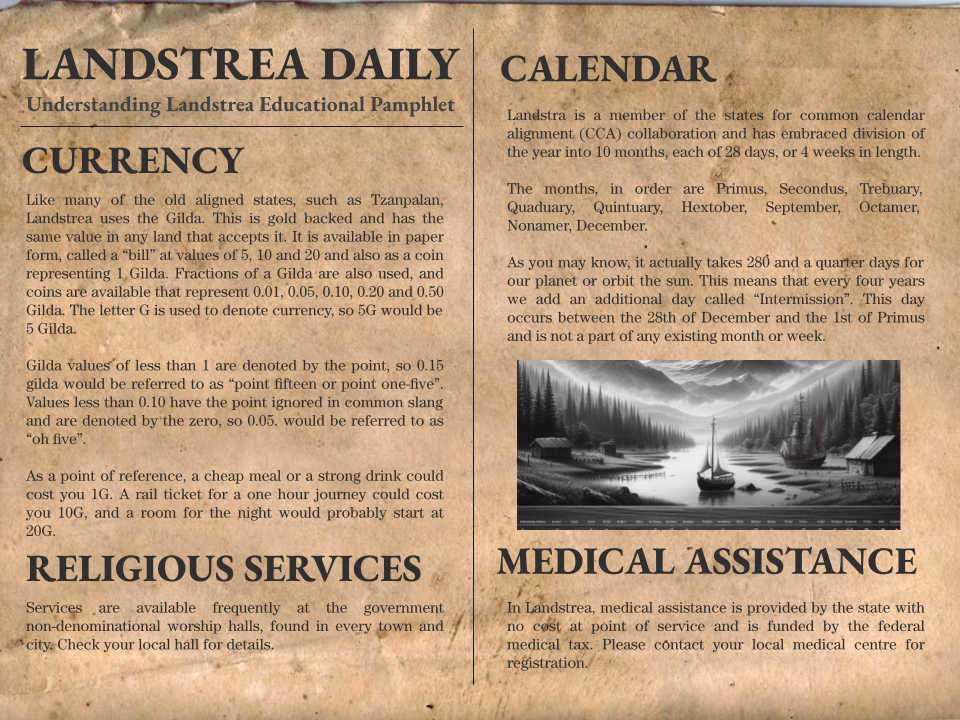A Landstrea Daily Retrospective

Reflecting on 30 Years Since the Mother War
In the shadow of devastation, the world stands today as a testament to resilience and reconstruction, three decades after the cessation of the Mother War. The scars of conflict are fading, replaced by the glow of technological advancements, yet beneath the surface lies a complex tapestry of progress and challenges.
Thirty years ago, the echoes of gunfire and the cries of the wounded were silenced as the Mother War concluded. The aftermath brought a collective determination to rebuild shattered societies and forge a new path forward. From the ashes of destruction, nations emerged with a commitment to progress and cooperation.
Technological innovation has been a beacon of hope in this post-war era. Advancements in medicine, communication, and transport have propelled us into a new age. The once ravaged landscapes are now dotted with skyscrapers reaching toward the heavens, a symbol of humanity's resilience and creativity.
However, this progress has not been without its setbacks. The underbelly of prosperity reveals a surge in crime rates, a consequence of the social upheavals and economic disparities that followed the war. As societies grapple with these challenges, there is a growing realization that true peace extends beyond the absence of armed conflict; it requires addressing the root causes of unrest.
In recent years, geopolitical tensions have resurfaced, casting a shadow over the hard-fought peace. Several states find themselves at odds, their relationship strained by territorial disputes and historical grievances. World leaders, mindful of the fragile equilibrium, are advocating for a naval treaty to curb expansionist ambitions and reduce the risk of a return to hostilities.
The proposed treaty represents a collective effort to maintain the delicate balance of power on the global stage. By limiting naval capabilities and fostering open dialogue, leaders hope to prevent the escalation of disputes into full-blown conflicts. The wounds of the Mother War are still fresh in the collective memory, and there is a collective determination to avoid a return to the horrors of the past.
As the world stands at this crossroads, it is crucial to remember the lessons of history. The journey from the ashes of war to the promise of a brighter future has been arduous, marked by both triumphs and setbacks. The call for a naval treaty serves as a reminder that peace is not a static achievement but an ongoing process that demands vigilance, diplomacy, and a commitment to shared prosperity.
In reflecting on the last 30 years, we must acknowledge the progress made and the challenges that lie ahead. the Mother War may be a distant memory for some, but its impact continues to shape the world we inhabit. The question now is whether we can learn from the past and navigate the complexities of the present to secure a peaceful and prosperous future for generations to come.


